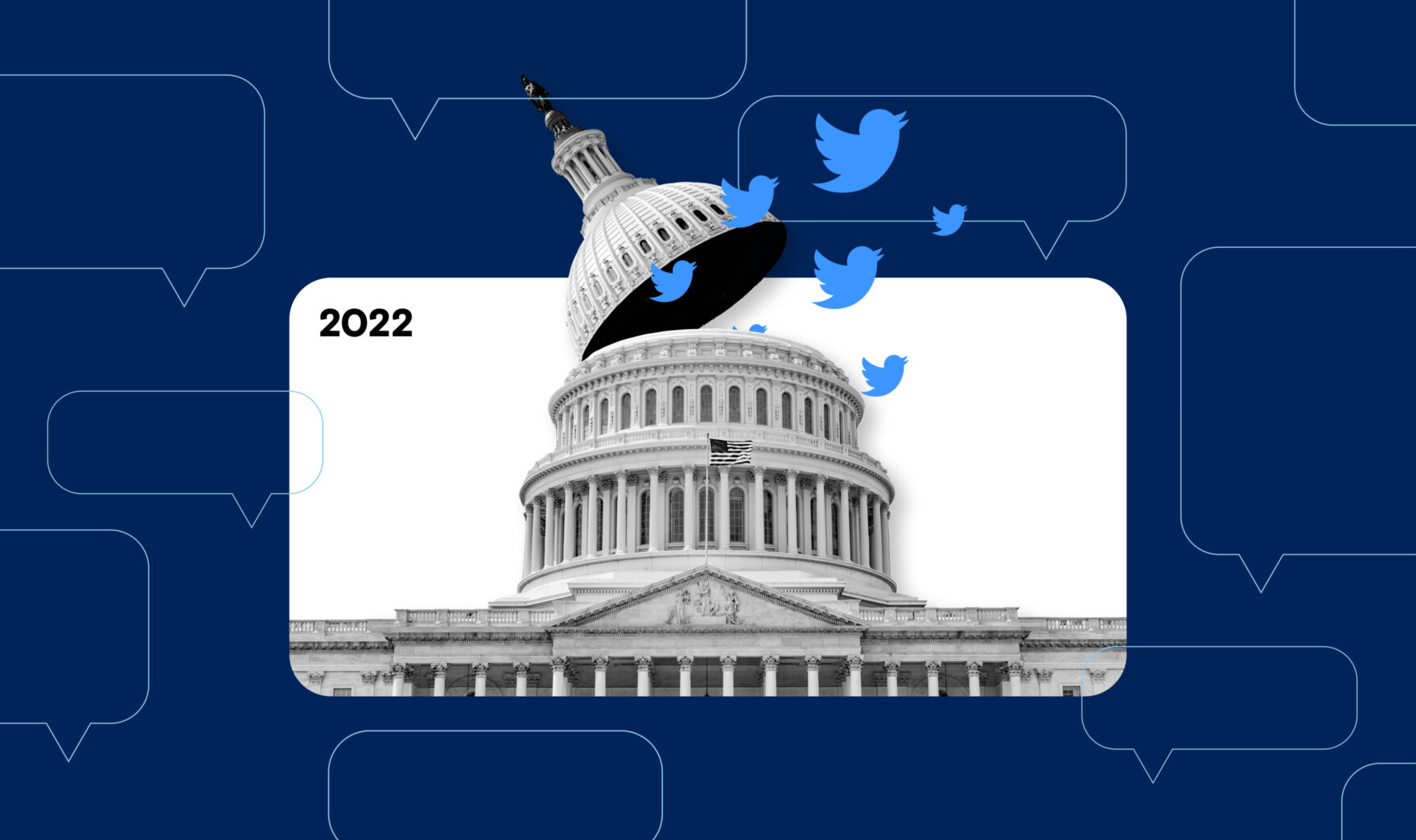
Welcome back to Capitol Chatter: A quarterly analysis of Congressional tweets, where we help you keep track of what Congress is tweeting. This analysis covers both trends from Q4 2022 and insights from the full year.
In 2022, Congressional Twitter accounts sent out a total of 495,086 tweets, a near 10% decrease from 2021.
For this analysis, we dove deeper into two areas of particular interest for Congress last year: Antitrust and cryptocurrency. Read on for more.
Congressional tweets by topic
In almost every category analyzed, there was a deceleration of tweets throughout the year. In 2023, we’ll be looking to see if decisions under Twitter’s new ownership will result in permanent changes to how members engage on the platform.
How Democrats and Republicans talked on Twitter
Democrats and Republicans focused on the economy in 2022 but from different angles, with Democrats emphasizing jobs and Republicans focusing on inflation.
Democrats placed a far greater emphasis on their bipartisan credentials. In tweets, Democrats used the term “bipartisan” 3.4 times as often as Republicans, touting significant legislation passed during the last Congress, such as the bipartisan infrastructure package and the Chips and Sciences Act.
Deep dive: Antitrust (Taylor’s version)
Antitrust was a focus for Congress throughout 2022. Members such as Sen. Amy Klobuchar (D-Minn.) and Reps. David Cicilline (D-R.I.) and Ken Buck (R-Colo.) pushed legislative proposals aimed at “breaking up” major tech companies.
However, no antitrust issue caused as much traffic on Congressional Twitter as the Ticketmaster-Taylor Swift controversy.
When Taylor Swift first announced she was going on tour following the release of her album Midnights, fans flocked to Ticketmaster to purchase presale tickets—resulting in a series of crashes and outages that continue to haunt the company. Media sentiment about Ticketmaster dropped precipitously following the controversy, which also provided an opportunity for Members of Congress to tie their legislative agenda to the trending topic of the day.
Several members used the issue to promote their antitrust policies, calling for an investigation into the “Live-Nation Ticketmaster monopoly”; at last month’s Senate Judiciary Committee on the matter, several Senators quoted song lyrics from Swift’s music to support their positions.
Deep dive: Cryptocurrency
2022 marked a turning point in Congress’ relationship with crypto: In addition to several hearings, the year saw multiple new pieces of legislation that would attempt to provide a regulatory framework for the industry.
While tweets about these bills, largely from sponsors and cosponsors of the legislation, did drive small spikes in mentions throughout the year, they were dwarfed by scrutiny of the FTX collapse. Members of both parties regularly tweeted about FTX, culminating in a House Financial Services Committee (HFSC) hearing about the reasons behind the company’s spectacular implosion: Around the hearing, members tweeted about FTX over 60 times a week, more than double the number of mentions of “crypto” in any week prior.
In 2023, we expect members will use FTX’s example to push for the creation of a regulatory framework for cryptocurrencies. With the recent creation of the HFSC Subcommittee on Digital Assets, Financial Technology, and Inclusion, crypto is likely to remain a focal point for lawmakers and regulators.
Methodology
Penta conducted text analysis on tweets and retweets from members of Congress’ official and congressional committee accounts that were posted between January 1, 2022 and December 31, 2022, using a list maintained by CSPAN. In total, we searched for more than 300 keywords in each of the 495,086 tweets to determine which topics were discussed in each. In this analysis, independent Senators Bernie Sanders (I-Vt.), Angus King (I-Maine) and Kyrsten Sinema (I-Ariz.), who caucus with the Democratic Party, were treated as Democrats. Charts and numbers may vary slightly from quarter to quarter, given methodology adjustments.
Penta tracks global publicly available print, online, broadcast, social, and premium sources and uses a proprietary sentiment analytics system to analyze expressed sentiment. Sentiment scores are calculated by incorporating a weighted average of sentiment, influence, and other variables for all content sources. Content is scored sentence by sentence based on whether the mention or phrase is positive or negative.
Contact Us